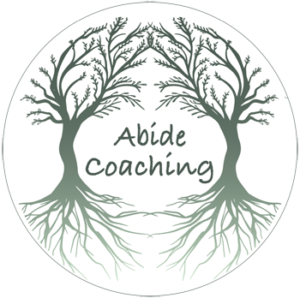How is work going? Maybe you aren’t in your office these days but if you have a job that can be done remotely think about how that is working for you. This blog is mostly about tips for working in an office but they can be tweaked to fit this strange time we are all working in. Particularly the section about a sense of time.
Are you getting formal (performance reviews, write-ups) or informal (verbal) feedback that you aren’t quite meeting expectations? Have you heard this before? Maybe you feel overwhelmed at work, or like you aren’t performing at your job as well as your peers?
Any of the above can be a red flag that something is wrong with your executive functions skills. Whether it is an executive function deficient or ADHD, there are actions you can take to improve your performance at work. Noticing the red flags is the most crucial step. Awareness can lead to meaningful actions, especially if you are working with a coach.
ADHD can have a significant effect on work. Many people struggle with the organization, focus, keeping track of multiple projects, meeting deadlines, working memory, following directions for various reasons, completing assignments, loss of pay, job loss, interpersonal conflict, and so on. These challenges contribute to the findings in a national survey that showed only half of adults with ADHD were able to hold down a full-time job compared to 72% of their peers without ADHD.
What to do to set yourself up for success?
- Start the day in a good mood. Create a morning routine that allows you to start the day calmly. It can be hard if you have kids to get out of the door or even if you aren’t a morning person. Try to get as much prepared the night before as possible. Try to exercise in the morning in a matter you enjoy. I have clients who dance, hike, and bike ride. Try laughing in the morning. I have a client who listens to comedy on the drive to work.
- Eat a well-balanced diet.
- Move your body doing anything.
- Sleep – there is no hack for sleeping.
- Talk to your doctor about a treatment plan.
- Find a job that has short-timelines loads of variety.
- Ask for specific feedback – If you are receiving reviews at work that are not positive, ask for specific about what your boss wants. If you haven’t disclosed your ADHD, it may be time too.
- Reward yourself for accomplishments. They don’t have to be significant. A reward can be going to the office kitchen to get a cup of coffee.
- Work with an ADHD coach.
What to do if a sense of time is your biggest challenge?
- Keep a calendar – the act of writing stuff down helps almost all of my clients, so old fashion calendars are still a great choice. Also, they can be left open on the side of a desk as a visual reminder all day. Many people with ADHD tend to be out of sight, out of mind thinkers. I have a few clients who do well with the calendar on their mobile phones. They are usually techy and respond well to reminders and alarms. Find what works for you.
- Get it out of your head – Holding information in your head is using up energy you could be used to complete other tasks. Write down random ideas in a section of your planner or in a notebook that you carry with you. In meetings, if you are assigned a task, add it to your to-do right then.
- Diminish tasks – by creating as many templates as possible. If you send many of the same emails, make a template. If you write similar reports, make a template. Any time you can make a task smaller, do it. It takes time on the front end, but it worth it overall.
- Delegate tasks- if you have staff, use them. It allows you both to shine. If you have an admin assistant, ask them to keep your calendar for you, and create your templates.
- Schedule emails and phone calls – Do these tasks as specific times daily at work. I would not suggest checking your email as soon as you are at work unless it is a vital part of your job. I would recommend working a little on a project, and when you break from that, then check. I have a client who even added the times he returns emails to his signature line on outgoing emails to relieve his guilt about not replying immediately to his clients.
- Schedule uninterrupted work time – Set up times during the day when you don’t answer emails, answer phone calls, and staff, colleagues, and bosses don’t visit you. Pomodoro timers are a great way to set up work blocks. I suggest giving each work block a specific theme or topic. It could be a particular type of work or a specific project. Eventually, you will start to figure out how many work blocks it takes to do specific tasks take to complete.
- Take your breaks – Don’t work through your lunch. Yes, there may be an occasional day when you need to do this, but breaks are appointments with yourself. You wouldn’t no-show on a colleague or client but probably don’t think twice about no-showing for yourself. You need this time to eat, take a walk, meditate, or social interaction.
- Ask for deadlines – Ask specific request deadlines that are time and date instead of an indefinite period like by the end of the week. Shorter periods tend to work better for many people with ADHD.
- Transition timers – it is helpful to have a period when you start winding a project or your day down so that you can move on to the next thing or leave for the day.
- Plan more time than you think you need
- Chunk tasks into pieces and have a deadline for each to get a large project accomplished.
What to do if distractibility is your challenge?
- If you have an office, close the door for some of your work blocks.
- If you work in a cubical, ask for higher walls, to be in a low traffic area, or to wear earphones to block out other sounds.
- Work in unused areas of the building, like a conference room.
- Use part of your planner to write down random ideas that pop into your head so that you can keep on working or stay focused in a meeting.
- Forward all your calls to voicemail during work block periods.
- Turn off notifications on your cell phone, or turn off your phone, or keep your phone in your work bag or a drawer during work hours.
What to do if poor memory is your challenge?
- Use visual reminders – bulletin boards, sticky notes, both physical and digital.
- Record meetings and notes to yourself.
- Use your calendar/planner
- Create reminders that come with enough advance notice to get to meetings.
- Create a templated to-do list of actions you need to do daily
What to do if hyperactivity is your challenge?
- Exercise before going to work or before meetings
- Exercise during breaks; walk around the building or the floor, run up and downstairs, do crunches, sit-ups or push-ups, walk to the photocopier, etc
- Take notes in meetings to prevent restlessness.
- Request a standing desk so you can move while typing.
- If someone has a more physical job, see if there are some tasks you can trade.
What to do if interpersonal skills are your challenge?
- If you are working with a coach, role-play difficult conversations.
- Find a job with lots of autonomy.
- Work virtually
- Practice picking up on non-verbal social cues. Many people with ADHD have a hard time with this skill.
What to do if impulsivity is your challenge?
- Practice mindfulness – anything that gets you out of your head and into your body is mindfulness—walking on a break, experiencing your lunch by thinking about how it tastes or feels while chewing it, hold your chair feels, what you can see or smell from your office chair and so on.
- Develop routines to cope in situations that occur frequently.
- Monitor your actions with self-talk.
- Ask for feedback from your boss or co-workers.
Next month’s blog will be whether or not you should disclose your ADHD at work.


